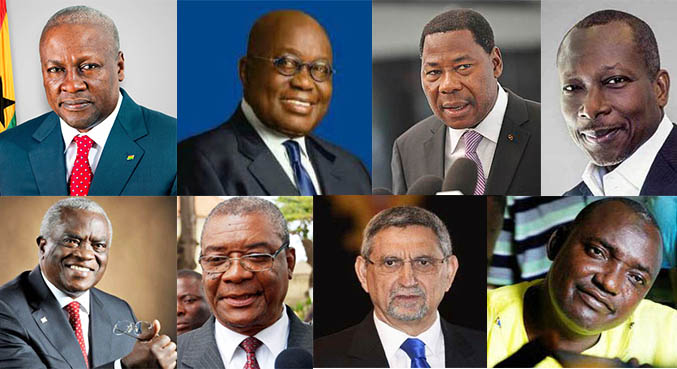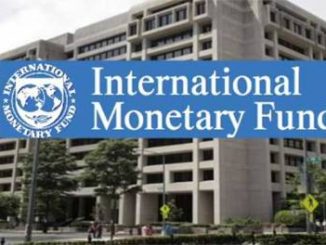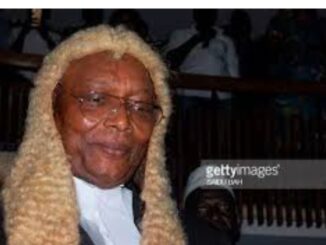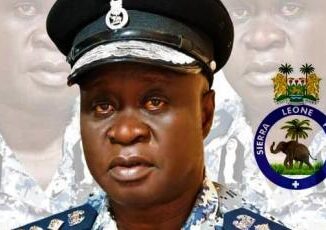
EIGHTEEN presidential elections were scheduled in Africa this year. Thus far, 10 incumbents have secured their re-election, six new presidents have been elected into office, one election has been postponed and one national election (in Guinea) still has to be conducted before the end of 2016.
A review of the electoral events this year highlights the manipulation, intimidation and contestation that mar democratisation processes in the continent. Yet despite these setbacks, some of the elections were considered transparent, free and fair.
In Benin, incumbent President Thomas Boni Yayi stepped down after his second term, in line with the constitution. Patrice Talon was elected president on 6 March.
In São Tomé and Príncipe, Evaristo Carvalho defeated president Manuel Pinto da Costa, who had served as president from 1975–1991 and 2011–2016.
Jorge Carlos Fonseca was re-elected for a second term as the president of Cape Verde with 74% of the votes in an election considered free, transparent and fair.
However, one of the most dramatic results for years came from The Gambia, where President Yahya Jammeh, who seized power in a coup 22 years ago, was defeated by the opposition coalition candidate Adama Barrow.
The really big and unbelievable surprise was how quickly Jammeh conceded defeat. Ahead of the vote, there had been a widespread crackdown on the opposition, and even the killing of activists. And on the eve of the December 1 election, the government shut down the internet and blocked international calls. It has also rejected international election observers.
All signs were that Jammeh was going to extend his rule by hook or crook – then the surprise. Or was it? On December 10, Jammeh reverted to type, rejecting the election and deploying the army on the streets of the capital. The Gambian democratic flirtation had lasted only a week.
As Jammeh did his u-turn, Ghana was closing the counting of the votes from its December 7 elections. Opposition leader Nana Akufo-Addo beat incumbent John Mahama.
Mahama became the first elected Ghanaian president to lose an election after just one term, but that didn’t dump this enthusiasm, as he conceded the election and heartily congratulated Akufo-Addo, who was making a third run at the job.
OLD WAYS DIE HARD
However, a number of leaders did find ways this year to change their constitutions to remove term limits, or to brazenly rig the vote.
In countries where there are no term limits, the challenge lay in the credibility of electoral processes. This was especially true in states where incumbent and influential leaders wield the power to determine the outcome of electoral results.
Uganda’s President Yoweri Museveni, won a violence and controversy-marred election in February, thus extending his 30-year-rule for another five years. The electoral commission declared him winner with 61% of the vote.
Term limits were scrapped in Uganda in 2005.

The numerous arrests of Kizza Besigye, the main opposition leader of the Forum for Democratic Change, marred the electoral process in Uganda in February.
Besigye was accused of treason for violating public order laws by staging illegal campaigns and protests
President Denis Sassou Nguesso, who has ruled the Republic of Congo for 32 years, ensured his re-election in March through constitutional changes. In Chad, President Idriss Déby Itno secured his fifth term in office having led a constitutional reform that removed term limits in 2005.
In Equatorial Guinea, President Teodoro Obiang Nguema, who has been in power since 1979, was re-elected with 99.2% of the vote in April. Term limits were scrapped in 2011, which means that Obiang – who is now 74 years old – is technically serving his first term in office. This term will last for seven years with grounds for possible re-election for a second term.
Elections in states with long-serving presidents tend to be attempts to enhance the legitimacy of leaders by assuaging international and domestic actors clamouring for democracy.
Some long-serving regimes have opted for “rigged” elections to legitimise their power.
OPPOSITION PARTIES UNDER PRESSURE
Others have systematically weakened opposition parties and dissenting voices through political repression, limiting the financial capacity of opposition parties and using state resources to dispense patronage.
In Djibouti, a weak opposition tried in vain to unseat President Ismaïl Omar Guelleh, who has been in power since 1999. Term limits were scrapped in 2010. Guelleh won the presidential election in April with 87% of the vote. Opposition parties and rights groups criticised the election process for curbing basic freedoms.
In the Republic of Comoros, the presidency rotates among the country’s three islands – Anjouan, Mohéli and Grande Comore. Azali Assoumani of Grande Comore narrowly won the election this year. The opposition claimed that the results were falsified but the Constitutional Court dismissed the claim despite public protests.
In Zanzibar, the opposition boycotted the election in March over allegations of electoral fraud. The election was a re-run of the presidential polls in October 2015, which had been annulled due to allegations of fraud.
The main opposition party, the Civic United Front, claimed that the cancellation of the October vote on the islands was aimed at preventing its leader – Seif Sharif Hamad – from claiming victory. The opposition boycotted the second round of the election, leading to a comfortable win for incumbent President Ali Mohamed Shein of the Chama Cha Mapinduzi (CCM) party. He won the election with 91% of the vote. The CCM has ruled Tanzania for over five decades.
In Niger, President Mahamadou Issoufou secured a second term in office with 93% of the vote on March 20.
In the first round in February, Issoufou had failed to win the outright majority and had to face a second round against main opposition leader Hama Amadou, who is in jail.
The opposition boycotted the polls in protest against his imprisonment on suspicion of child trafficking, saying this was a political ploy to stop Amadou from winning the presidential elections.
In Chad, the Republic of Congo, Uganda and Gabon, elections were followed by violent demonstrations and contestation over the outcomes.

In the case of Gabon, violence erupted on 31 August after the proclamation of President Ali Bongo’s victory over his rival Jean Ping.
When the case was brought before the Constitutional Court of Gabon, it gave Bongo 50.66% of the vote and Ping 47.24%, thereby upholding Bongo’s re-election.
The Zambian election on August 11, was also among the contested elections this year. President Edgar Lungu narrowly won the elections, with 50.35% of the vote, over his rival Hakainde Hichilema, who received 47.67% of the vote.
The opposition rejected the results due to alleged polling irregularities and bias in favour of the incumbent. However, the Constitutional Court dismissed the case, saying that the deadline for contesting the results had passed.
Lungu was re-elected into office after having been appointed president in January 2015 through presidential by-elections following the death of Michael Sata in October 2014.
INTERNET SHUTDOWNS

The shutdown of social media has become an infamous approach used by some states to infringe on citizens’ right to information during elections. In line with this, the governments of the Republic of Congo, Gabon, Chad and Uganda opted for social media blackouts during the election period, thereby creating anxiety over the results.
In Ghana, the government dropped the idea of an Internet shutdown during the December 7 general election.
Inspector General of Police John Kudalor had suggested the shutdown over fears that violence between political parties could undermine the electoral process. President John Dramani Mahama of the ruling National Democratic Congress is seeking a second term in office.
ELECTIONS IN CRISIS STATES
In the Central African Republic (CAR), Faustin-Archange Touadéra was elected president in February. He now faces the enormous task of addressing the insecurities and divisions that have plagued the country since 2013. The election ended the two-year transitional government under former president Catherine Samba-Panza.
Presidential elections in Somalia were scheduled for November 30, but were again postponed to a date “before the end of the year”.
However, Parliamentary elections expected to end before the scheduled date for the presidential are ongoing despite reports of irregularities and corruption, which are under investigation.
Members of the 275-seat Lower House of parliament and the 54-seat Upper House elect the president, according to the country’s Provisional Federal Constitution.
A peaceful and transparent election in Somalia is key to consolidating and enhancing the progress made to put the country on the road to stability. Notably, the success of the AU Mission in Somalia (AMISOM) and its planned exit by 2020 is tied to the success of the elections and the ability of Somali leaders to provide political goods to citizens.
THE ELECTION THAT WAS AVOIDED
In the Democratic Republic of the Congo, elections were supposed to be held this year for President Joseph Kabila to step down when his second and last term expires at the end of 2016, according to the constitution. However, the Congolese government has argued that a technical delay in preparing the elections means they cannot be held this year.
CULLED FROM AFROPEDIA



